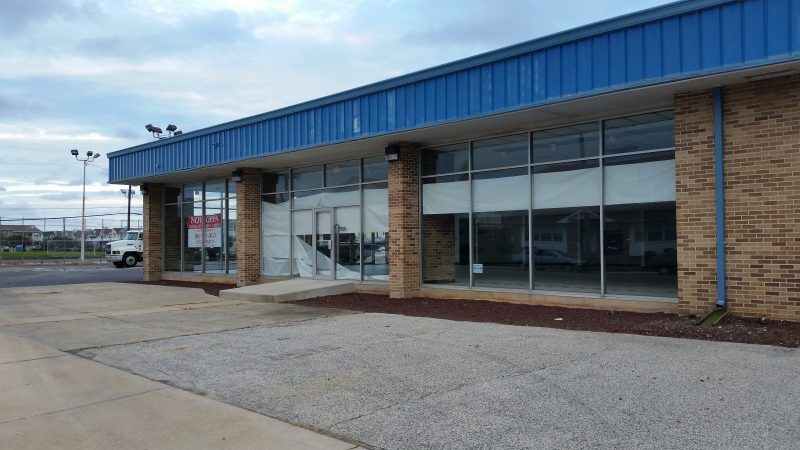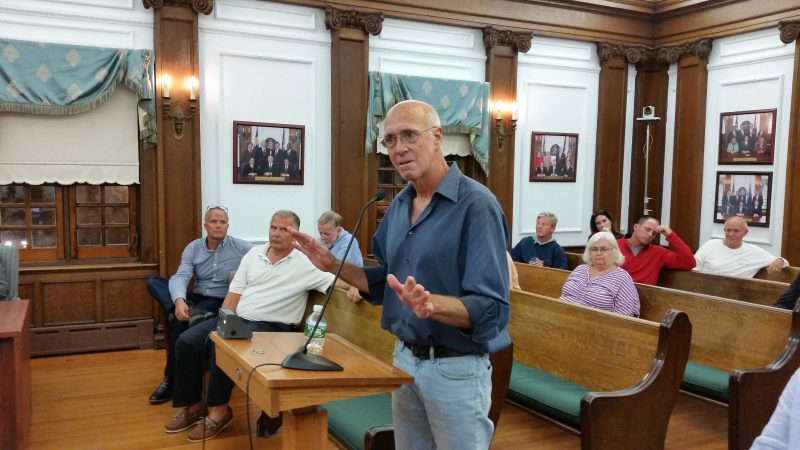The City Clerk's Office will review the amended petition to see if it contains enough valid signatures for a public referendum.
 By Donald Wittkowski
A local government watchdog group submitted an amended petition Monday as it continues its efforts to force a public referendum on Ocean City’s proposed $9 million purchase of strategically located land.
Fairness In Taxes has been trying to collect enough signatures from registered voters to put the land deal on the ballot, although Mayor Jay Gillian believes a public referendum would likely kill the transaction.
FIT’s first petition was denied by City Clerk Melissa Rasner on Oct. 10 for not having enough signatures. The organization renewed its efforts in the past two weeks by seeking more signatures.
City spokesman Doug Bergen confirmed that FIT submitted an amended petition Monday to Rasner’s office, but gave few details in a brief statement.
“The City Clerk’s Office is reviewing an amended petition submitted today by representatives of the local group Fairness in Taxes. The petition seeks a public vote on the funding ordinance for the proposed purchase of a portion of the car dealership lot adjacent to the Ocean City Community Center,” Bergen’s statement said.
Bergen added that the mayor and the city administration would reserve comment until the clerk completes the review.
By Donald Wittkowski
A local government watchdog group submitted an amended petition Monday as it continues its efforts to force a public referendum on Ocean City’s proposed $9 million purchase of strategically located land.
Fairness In Taxes has been trying to collect enough signatures from registered voters to put the land deal on the ballot, although Mayor Jay Gillian believes a public referendum would likely kill the transaction.
FIT’s first petition was denied by City Clerk Melissa Rasner on Oct. 10 for not having enough signatures. The organization renewed its efforts in the past two weeks by seeking more signatures.
City spokesman Doug Bergen confirmed that FIT submitted an amended petition Monday to Rasner’s office, but gave few details in a brief statement.
“The City Clerk’s Office is reviewing an amended petition submitted today by representatives of the local group Fairness in Taxes. The petition seeks a public vote on the funding ordinance for the proposed purchase of a portion of the car dealership lot adjacent to the Ocean City Community Center,” Bergen’s statement said.
Bergen added that the mayor and the city administration would reserve comment until the clerk completes the review.
 The City Clerk's Office will review the amended petition to see if it contains enough valid signatures for a public referendum.
Dave Hayes, FIT’s president, and Dave Breeden, the vice president, could not be reached for comment Monday.
The City Clerk's Office will review the amended petition to see if it contains enough valid signatures for a public referendum.
Dave Hayes, FIT’s president, and Dave Breeden, the vice president, could not be reached for comment Monday. Landowner Jerry Klause tells City Council at its Sept. 27 meeting that his family wants to sell to the city, but is willing to consider offers from housing developers.
Gillian and City Council have stated the property deal would benefit the community by preserving the land for public use. The alternative could be 29 coastal cottages, a type of densely packed housing construction that city officials warn would add to the town’s overdevelopment.
The mayor has expressed concern that a referendum would delay the land deal from going through, possibly forcing the city to engage in a bidding war with housing developers over the property. He believes that would doom the city’s attempt to buy the property.
A sales agreement between the city and the Klauses expires Oct. 31. Gillian has said that if the city doesn’t complete a deal by then, the property will eventually end up in the hands of developers for housing construction.
Landowner Jerry Klause tells City Council at its Sept. 27 meeting that his family wants to sell to the city, but is willing to consider offers from housing developers.
Gillian and City Council have stated the property deal would benefit the community by preserving the land for public use. The alternative could be 29 coastal cottages, a type of densely packed housing construction that city officials warn would add to the town’s overdevelopment.
The mayor has expressed concern that a referendum would delay the land deal from going through, possibly forcing the city to engage in a bidding war with housing developers over the property. He believes that would doom the city’s attempt to buy the property.
A sales agreement between the city and the Klauses expires Oct. 31. Gillian has said that if the city doesn’t complete a deal by then, the property will eventually end up in the hands of developers for housing construction.